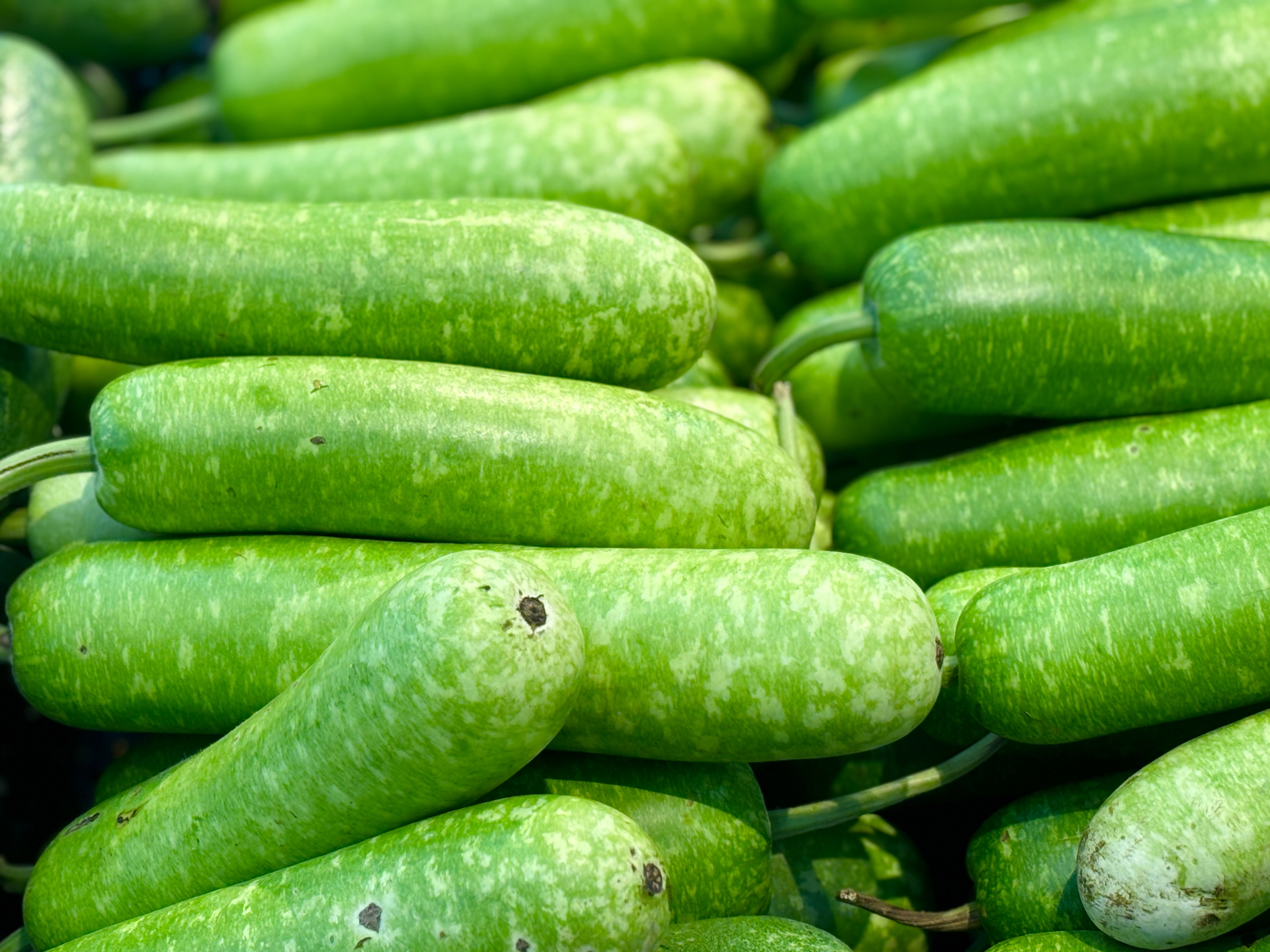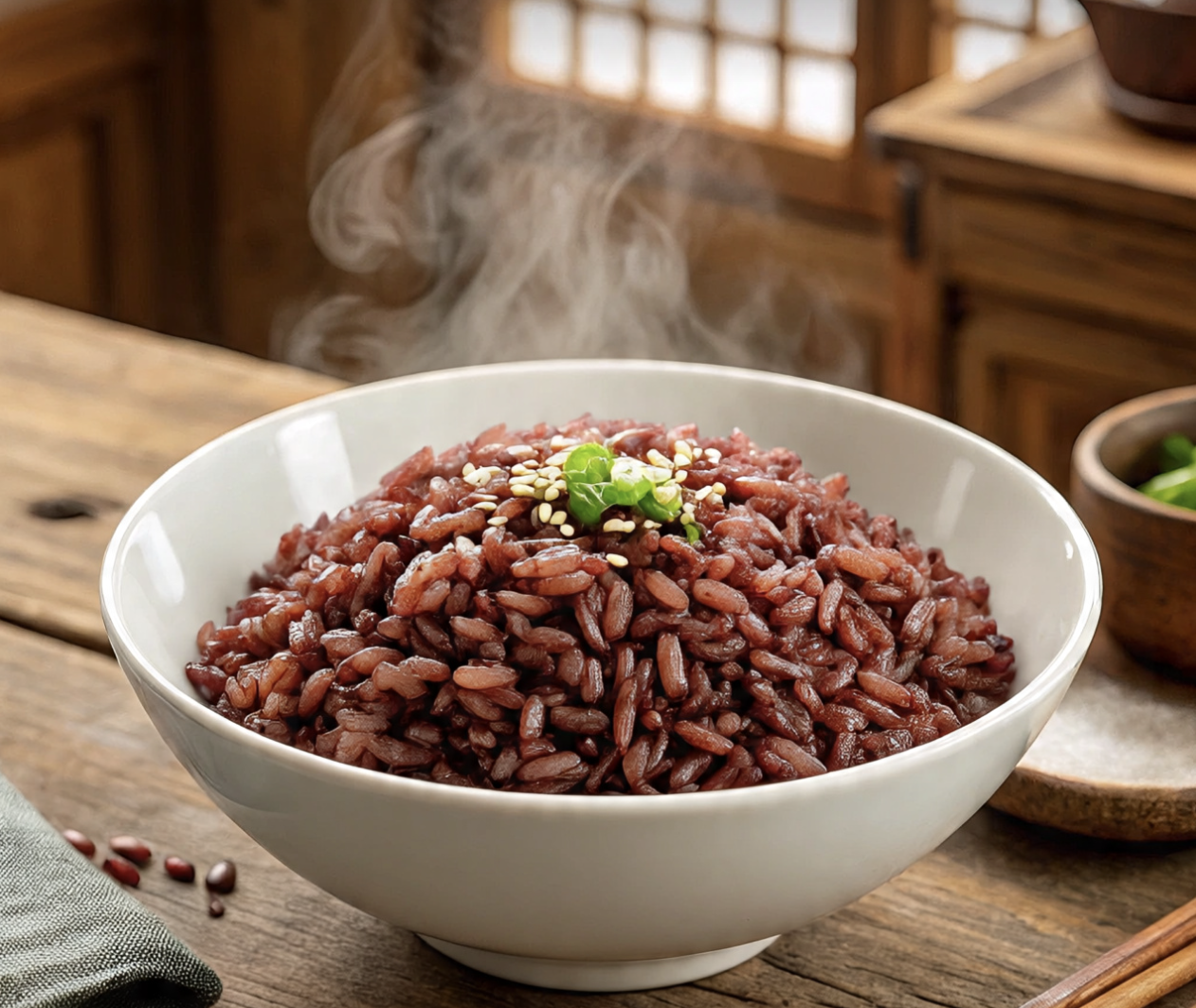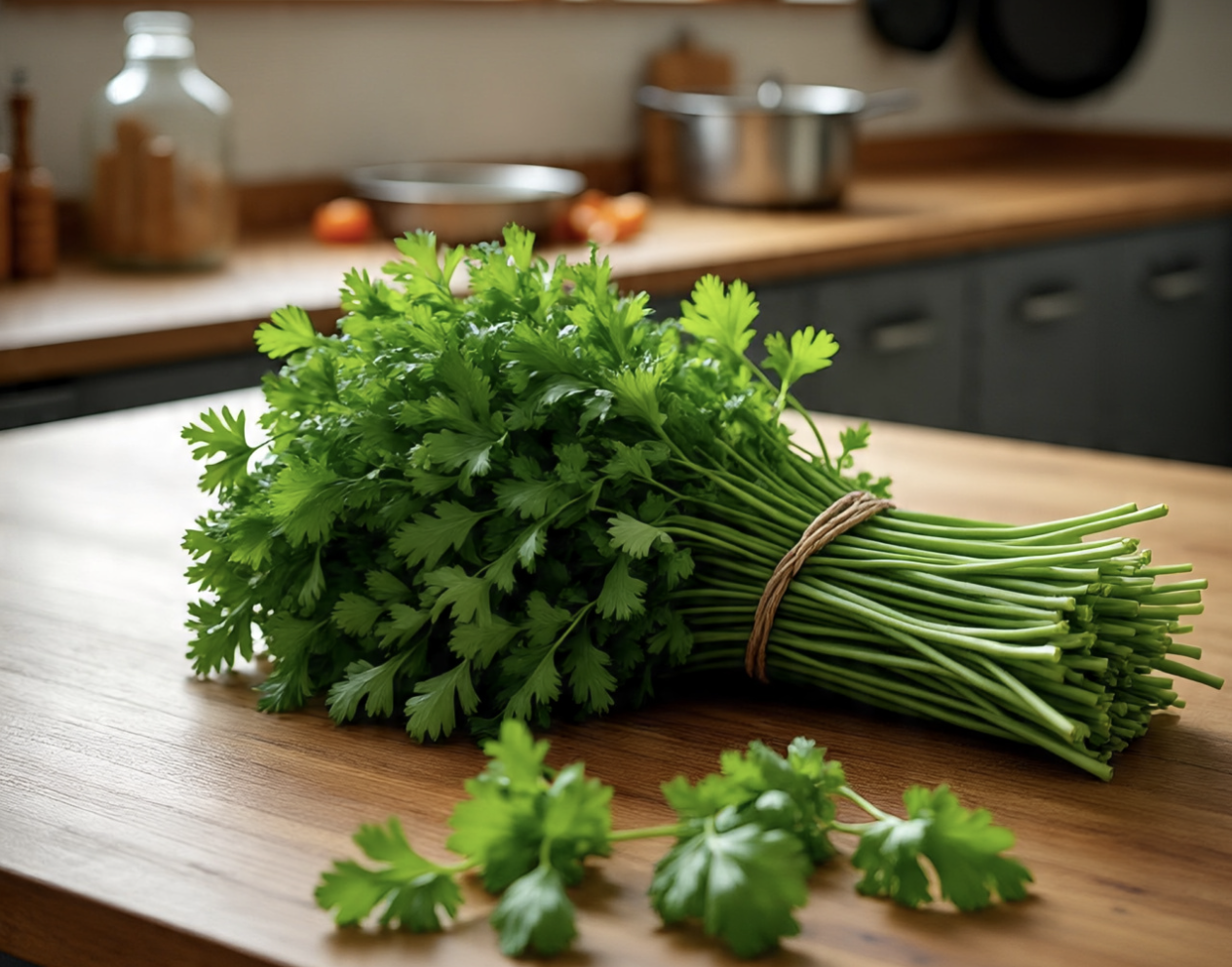 |
Kidneys perform several vital functions, including fluid balance, waste filtration, and blood pressure regulation. Besides drinking enough water, a healthy diet supports long-term kidney health.
Bottle gourd is cooling, hydrating, and easily digestible. Its high water content helps flush out toxins and reduces the workload on the kidneys. Bottle gourd can be prepared in various delicious and refreshing dishes, such as boiled, in soups, or stir-fried.
 |
Brown rice is rich in fiber and antioxidants. Unlike regular white rice, it has a lower glycemic index and is easier to digest. Brown rice helps control blood sugar levels, reducing stress on the kidneys while providing energy and promoting satiety.
 |
Cilantro has potent antibacterial properties, aiding the body in eliminating waste and naturally reducing water retention. Its antioxidants combat free radicals, protecting kidneys from oxidative stress, a factor contributing to kidney disease progression.
 |
Turmeric, known for its anti-inflammatory properties, can benefit kidney health by protecting against inflammation-induced damage. However, individuals with a history of kidney stones or prone to oxalate-related kidney issues should consume turmeric in moderation and ensure adequate hydration to prevent stone formation.
 |
Fatty fish like salmon, mackerel, and sardines are packed with omega-3 fatty acids, which reduce inflammation and prevent high blood pressure—two major contributors to kidney disease. These healthy fats also support cardiovascular health, which is closely linked to kidney function. Omega-3s regulate blood lipids and reduce protein leakage through urine. Fatty fish also provides high-quality protein, a better choice for kidneys than red meat. Consuming 2-3 servings of fatty fish per week can support long-term kidney function.
Bao Bao (According to Times of India)
Photos: Bao Bao, AI












